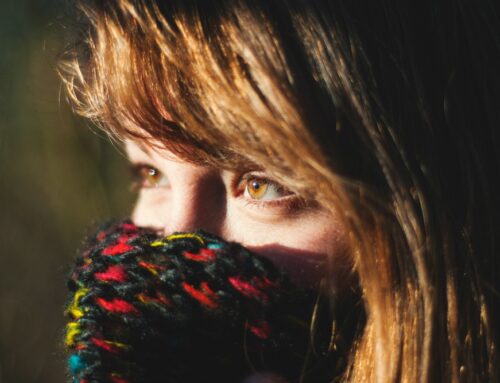In order to understand attachment theory and healthy bonding between adoptee(s) and new parents we first must take a deeper look at understanding abandonment(loss of attachment).
Infants or toddlers of adoption have separation anxiety from the instant they are separated from their biological mother. This separation anxiety is an automatic biological response to being abandoned and discarded. Let’s be honest – I know this seem harsh but from their point of view this is the honest truth, this is what they are feeling internally. Everything they have known for the past 9 months in utero – felt, tasted, sensed, heard and experienced is gone when they are given up for adoption and taken away from their biological mother. They are stripped of everything familiar, everything within minutes of being born. This leaves the infant or child feeling unwanted, lost and over time are highly likely to experience self-image issues, troubles with personal relationships, potential developmental delays or learning disabilities, mood swings and behavioral issues and will constantly fear being abandoned again. They often develop amazing people pleasing skills and tolerate negative and abusive relationships for fear of abandonment.
Abandonment is a severe form of shock which leaves the infant with unconscious somatic memories associated with early losses therefore it is hard for a child to trust or build loving bonds with another. A fear is built into the nervous system that they are unlovable and will be given up again; this can lead to high level of anxiousness, insecurities and possibly compulsive behaviours as they try to cope with their internal sensations and irreconcilable emotions. The infant will try to internally manage their emotions and will figure out coping mechanisms that can easily go unnoticed such as gripping their stomach, tightening their muscles, from colic to anger or will entirely avoid engaging in any social engagement. Infants will respond differently to their new adoptive parents and their separation anxiety is highly personalized and unique.
Abandonment can also develop over time with neglectful or mis-attuned parents or parents who are overwhelmed and possibly ill equipped to soothe their new baby or be emotionally and physically available with their new addition. This can even stem from our own attachment styles, developmental trauma and for new mothers can bring up feelings of being inadequate or trauma around not being able to conceive or carry your own child. This can be extremely emotional and painful for a new adopted mothers.
The adoptee(s) may become stuck in one of two autonomic nervous responses – shutdown thus in a frozen state where they do not demand the attuned attention or emotional bonds of their care givers or in a fight/flight response thus hyper alert and aggravated to everyone and everything around them. If your baby is having colic, sleep issues or any digestive issues – these are red flag and it is really important to seek professional help if you notice these behaviours and patterns arising immediately. The sooner you can seek the assistance of a developmental expert who specializes in touch work for infants and children, then sooner ruptures and dysregulation can be repaired. I urge you to find a Somatic touch and Somatic Experiencing practitioner specializing in developmental trauma or contact me and I would be happy to assist to help find a practitioner in your area. Another option would be to fly your family to Vancouver, BC to see me for sessions or arrange for me to come to your home and work with you and your beautiful new child and family.
Recommendations for Adoptive Parents/New Parents:
-
- Dig deep for compassion and patience as you are going to need an endless supply, a depth of compassion beyond what you ever thought was imaginable. Let’s talk science for a moment – endorphins and oxytocin (hormone of love) did not assist you to begin to signal labour so they will not be organically present when you attempt to bond with your new baby or child and their little system did not grow inside you get 9 months to regulate and to know your voices.
- Skin to skin holding is the best form of bonding. If you are able to be present at the birth of your child please arrange with the hospital a private room so that you and your partner can bond immediately with the infant with skin on skin. Speak in soft soothing voices and avoid any sudden loud noises or abrupt movements. The baby might have a heightened startle response given the “Shock” they are experiencing from being taken from their biological mother. Continue skin on skin contact at home for 3 weeks.
- Do not wear a mask ever around your babies, toddlers or children or make them ever wear a mask. All humans are dependent on facial cues to help them determine trust, emotions and if they are safe. These micro facial cues are extremely important to the development of a baby’s brain and for their long term mental health. Our nervous system is entirely stripped of any inputs if we are wearing masks.
- Let your infant decide when they are hungry. Do not put them on a feeding schedule, which you determine to be best for them. It is imperative to let the child decide and to learn their own body signalling system that lets them know when they are hungry, thirsty and tired. They should be feeding every few hours when they are newborn. You are now on their schedule – this is the best way to raise a healthy regulated child. Please buy Organic Formula, which does not have all the chemical fillers, corn or soy – https://www.beyondorganicbaby.com
- Place their crib right beside your bed (do not make them sleep in a separate room for at least 16 months). You need to foster a health attachment bond and that is only formed when you are physically and emotionally attached to one another. They need to be physically close so that they can see you. They do not need to learn how to self soothe right now or to be in a room by themselves for the first 2 years of their life. What they need to learn is how to trust that a human will always show up when they need someone or something. Do not let them self-soothe themself or cry it out – they need to learn that they can trust you will always be there to help them settle, that you will show up with every cry and every demand.
- Do not uses stroller, swing seats, jolly jumper or contraptions for the 16 months. Carry, hold or rock – this child needs quality human contact – physical and emotional contact. They do not need to be left alone in a chair, on the floor or in a stroller. Physical and emotional contact is essential for healthy attachment within the first 2 years of their life especially after adoption. North America is experiencing a touch deprived epidemic in infants, as we do not touch our infants enough instead we buy contraptions and devices to try to soothe a child rather then the parent. We need to bond and soothe by holding and emotionally connecting with the child rather then placing them in a battery operated swing or chair. They need to learn how to co-regulate with their new parents.
- Keep your promises and commitments – never go back on your word – you must be consistent and always be on time thus never giving them a sense that they are being abandoned, forgotten, or discarded.
- It is often hard to cope with instability and change when adopted. These children require greater stability in their life and need to be prepped for change days in advance. They do not like change or surprises. It will be really important to give them ample warning and preparation to anything new or any changes in plans or scheduling etc.
- Expression of healthy anger will be very important to foster as parents and to model to your child. Your child needs to know that anger is acceptable and can be expressed as their anger and sadness arises. Learn to grieve, express sadness, guilt, shame and anger as these will be essential to connect. Adopt children have lots of anger to process. Please help them to process it and make it okay to be mad and angry.
- Do not leave your child with relatives or allo-caregivers during the first 12 months of their life. Ideally, parents should not go on holidays or leave the child with anyone over night or for more then 1 or 2 hours. This is very confusing for an infant to comprehend where you have gone and if you will ever come back, particularly when you have been given up for adoption. It will create panic and abandonment symptoms may spike. The child may just shutdown and become unresponsive and stop putting any demands on their parents. (This is a big red flag when any infant becomes an excellent sleeper and does not need anything from his or her parents – stops crying and demanding much of any attention or begins to self harm). Infants should be placing demands on their parents every 2 to 3 hours, 24 hours around the clock.
If you have questions, please reach out. I offer one on one session to new parents and adoptee parents. No one teaches us how to be parents and there are no handbooks or how to guides for adopted children. Each adoption is different. Every child is very unique with its own bonding demands and nervous systems, which require different parenting styles and approaches. They require compassionate, patient and open parents that are willing to learn and focus or repairing their mistakes. Be gentle with yourself and extra gentle with your new baby or child.


